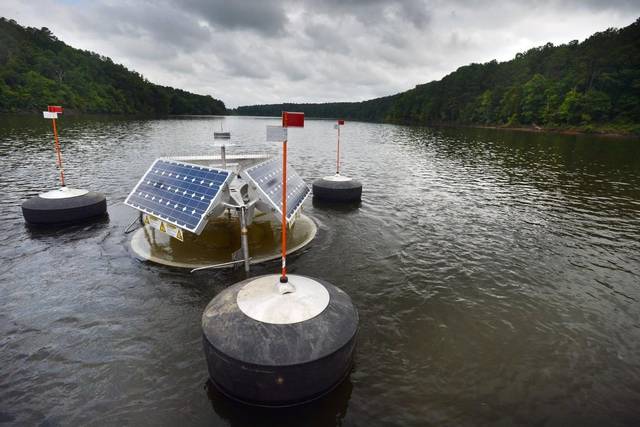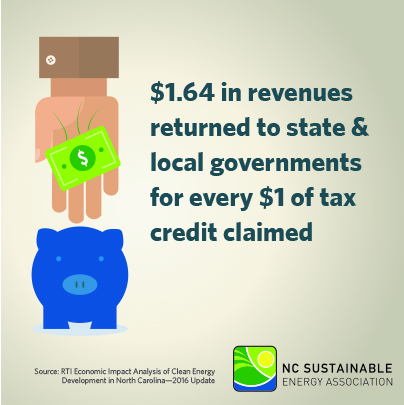The NC General Assembly is back in town as of tonight [shudder]. This week in CIB:
Once again the eerie echoes from an old Poltergeist sequel whisper across our state capital, as the NC General Assembly begins its 2016 budget “short session” in Raleigh this evening.
As reported last week in CIB, worries to watch for include legislation recommended by the Environmental Review Commission (ERC) that would roll back state agency authority to warn the public about identified toxic content risks in wells and public drinking water supplies. State Rep. Pricey Harrison (D-Guilford), a member of the ERC, commented, “Against my objections, the ERC moved forward a bill that prohibits health advisories from being issued for water contaminants unless federal or interim state standards have been established. Hexavalent chromium [a key contaminant of many wells tested near Duke coal ash pits] has neither.”
Other issues of concern to monitor include the following:
- Another ERC-recommended bill could restrict the state’s environmental regulators from requiring on-site stormwater management controls to protect sensitive waters in many permit cases.
- Department of Environmental Quality (DEQ) Secretary Donald van der Vaart is leading the charge to convert a key state tool for promoting clean renewable energy sources (such as solar and wind) into another subsidy for nuclear power plants that produce deadly radioactive wastes. Other attacks on the Renewable Energy Portfolio Standard (REPS) are possible. Van der Vaart also proposes to add state permitting and bonding requirements for solar farms, which would raise costs, create delays, and reduce their competitiveness margins against dirty energy sources.
- Observers expect an effort to expand the SolarBee water mixers boondoggle from Jordan Lake to Falls Lake as well, using it as an excuse to delay implementation of the genuine cleanup plan rules for that lake. Studies of the SolarBees have thus far found them to have no positive impact on water quality.
We await the introduction of bills beginning this evening, and we will cover the session starting with online alerts this week or an update in next Monday’s regular edition of CIB.
Administration Watch: Water Quality Expert Booted After Report on SolarBees
The former head of the NC Environmental Management Commission (EMC) Water Quality Committee has been removed as chair of that committee. The removal followed his criticism of a decision by the state Department of Environmental Quality (DEQ) to yank back the report showing that the SolarBee water mixers were doing nothing to improve water quality in Jordan Lake.
 As noted in the Legislative Watch item above, the state’s own expert analysis showed that the SolarBee devices weren’t working. Yet after that report was published, it was retracted by DEQ before the EMC Water Quality Committee could take it up for discussion. The then-chair of the Water Quality Committee, Steve Tedder, questioned that retraction. Now Tedder has been booted from his role.
As noted in the Legislative Watch item above, the state’s own expert analysis showed that the SolarBee devices weren’t working. Yet after that report was published, it was retracted by DEQ before the EMC Water Quality Committee could take it up for discussion. The then-chair of the Water Quality Committee, Steve Tedder, questioned that retraction. Now Tedder has been booted from his role.
Tedder has suggested that the motives for the change appear political, and one of his colleagues has resigned from his own committee chair position in protest. The EMC chair, Steve Rowlan, asserts that the move was unrelated to the report retraction and Tedder’s criticisms. Environmental advocates—and a key legislator—interviewed for the article agree that the sequence of events makes the move look questionable.
The EMC is the state environmental agency’s rulemaking board, appointed by the governor and legislative leaders. While diminished in its legal and political clout under the current administration, it remains an important potential watchdog group. That is, it can be that so long as its members are not silenced for raising alarms about apparent scientific funny business in the processes of state environmental decision-making.
Chairs of the EMC’s policy area committees are named by the overall chair of the EMC. However, the chair of the EMC itself is named by the governor and serves in that role at the governor’s pleasure. In practice, designation of the committee chairs has been made in consultation with the governor’s DEQ secretary, and that practice appears to have been followed in this case.
Tedder is a 37-year veteran of the state environmental agency and expert on water quality issues, who is now retired from state service. He hasn’t always been in agreement with environmental advocates on regulatory issues, but he does know his science. Unfortunately, objective science does not appear to be in the highest demand by current DEQ leadership.
Around the Globe: Nations Ink Climate Action Plan
In a ceremony coinciding with the American observation of Earth Day, leaders and representatives of more than 170 nations gathered at United Nations headquarters in New York Friday to sign the Paris Climate Change Conference Agreement. The occasion may represent the largest number of nations ever to sign an international accord on a single day. The formal event took place about four months after the deal was actually hammered out in final negotiations at the Paris conference itself.
Technical analysts note that the details of the agreement are insufficient by themselves to meet its stated specific goal for limiting average global temperature rise. However, they also call the agreement an historic change in direction that will lay the groundwork for even further reductions in greenhouse emissions in further negotiating rounds.
Progress cannot come too soon, as NASA scientists are already predicting that 2016 will be the hottest year globally since modern records began in the late 1800’s—the third such annual record in a row.
Education & Resources: Renewable Energy Report
 The North Carolina Sustainable Energy Association (NCSEA) has released the 2016 update to its ongoing “Economic Impact Analysis of Clean Energy Development in North Carolina.”
The North Carolina Sustainable Energy Association (NCSEA) has released the 2016 update to its ongoing “Economic Impact Analysis of Clean Energy Development in North Carolina.”
According to this latest update, our state saw over $6.3 billion in green energy investments between 2007 and 2015. These energy investments totaled nearly 20 times more than the state incentives which helped encourage their creation, and returned $1.64 in direct state and local government revenues for every $1 of tax credit claimed.
See here to read more details about this ongoing clean energy and jobs success story.
That’s our report for this week.
Share CIB on Facebook
Share CIB on Twitter
Comments? Questions? Spot an error? Contact CIB Editor Dan Besse at cib@nclcv.org. 



